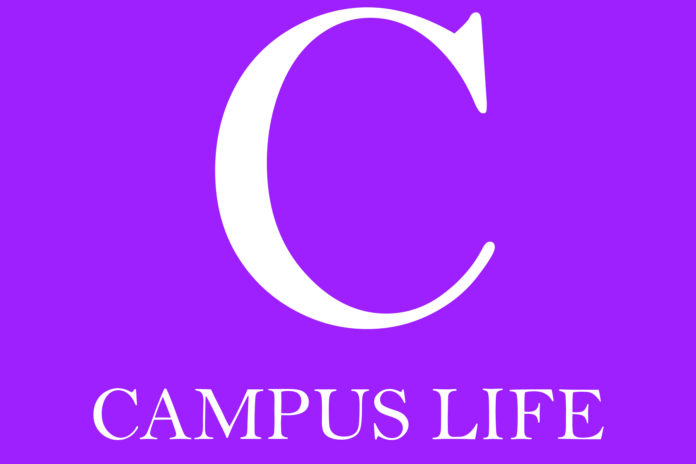The fourth Diversity, Equity and Inclusion (DEI) Career Conversations was held on Wednesday in the Robert M. Smith Student Center. The event featured speaker and alumna Elise Michaux, who discussed her experiences as a marginalized person in academia.
Michaux, a 2011 and 2013 alumna serving on SRU’s Council of Trustees, is also the director of enrollment management at Erie Community College. At the event, she provided resources for queer students who may need support.
Marissa Altenburg started the Career Conversation series. She is a graduate student in the Office of Student Affairs in Higher Education and is also a career coach in the Office of Career Education and Development.
According to Altenburg, the series was created because of her passion for diversity-related work. She recognizes that many people are still unfamiliar with diversity, equity and inclusion, or DEI.
“When I named this series, I originally didn’t write out ‘diversity, equity, inclusion,’ but I realized that’s not something everyone knows, so it’s important to write out,” Altenburg said.
Identifying herself as a queer woman, she strives to make everyone who comes to her office feel welcome.
“Creating a welcoming space, a space where you actively listen to students and a space where they know they can be their authentic selves is super important,” Altenburg said. “The best way to support them is by listening to their stories and validating them.”
Michaux, who also works with queer students, has a similar approach.
“Our application process allows for folks to put their preferred names, their pronouns and things of that nature so that we can ensure everybody is seen and heard, and feels welcomed right from the gate,” she said.
Michaux mentioned the importance of building rapport with queer students and anticipating their concerns, rather than waiting until a problem occurs.
Michaux works as a DEI consultant, doing workshops and presentations about topics related to diversity. She said as a young, queer, Black Christian woman, there aren’t many people like her in academia, which is part of the reason why she does the work she does.
“When students see themselves in the work and the workers, they are more likely to continue on and graduate,” Michaux said.
She discovered she was queer as an adult and describes the experience as one with extreme highs and interesting lows. People who embraced her identity have become her chosen family.
Michaux said she still experiences microaggressions at work, but in her words, “the purpose is bigger than the microaggressions.”
For people who are less secure in their identities, she said they should find like-minded people. Michaux finds that gathering positive information, such as affirmations, helps as well.
“If you’re not affirming yourself, if you’re not living your life authentically, then we’re missing out on all of you,” Michaux said.
Altenburg and Michaux have similar ideas about the future of queer people in the workplace. They agree that their experiences are getting better, but society has a lot of room for improvement.
“I remember when ‘That’s so gay’ was super common to say when I was younger,” Altenburg said. “In most spaces nowadays, I would say it’s not welcomed.”
Michaux believes the idea of “traditional professionalism” will have to change in order for workplaces to be truly inclusive.
Altenburg stressed the importance of advocating for policy changes, with straight and cisgender people joining queer people in advocacy, instead of standing by.
“As long as we keep having conversations, things will get better,” Altenburg said.








